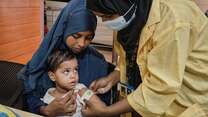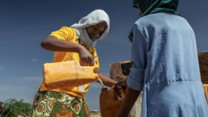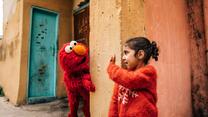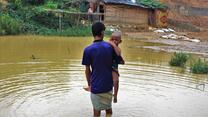The "Gindegi Goron" program, meaning "developing future" in Rohingya, is a groundbreaking early childhood development (ECD) initiative designed to improve outcomes for pregnant and lactating mothers and their young children in the refugee camps and host communities of Cox’s Bazar, Bangladesh. Home to over 1 million Rohingya refugees—52% of whom are children—Cox’s Bazar faces critical challenges, with nearly 40% of children experiencing stunting due to malnutrition and limited developmental opportunities.
Combining behavior-informed digital messages, interactive voice response systems, and in-person visits linked to health system referrals, Gindegi Goron was developed using a human-centered design approach in collaboration with the local community. This evidence highlights the program’s cost-effectiveness and scalability, with remote models reaching harder-to-access populations and hybrid models addressing complex needs. By integrating ECD, health, and nutrition, Gindegi Goron disrupts the cycle of poverty and stunting, offering children the opportunity to thrive and reversing generational impacts.



